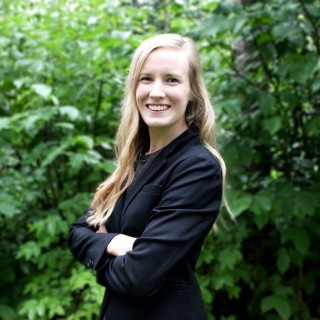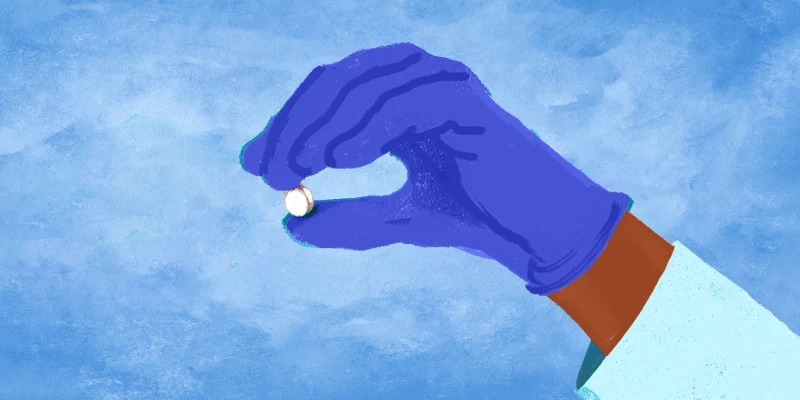
On my first day back to in-person rotations since the COVID-19 onset in the U.S., my preceptor asked me three separate times if I was still supposed to graduate and start residency on time. Each time I answered him with an uncertain, “I think so.”
I left that day and cried in my car on the commute home. My entire fourth-year schedule had been set since December of 2019, and in March 2020, nine of those rotations were canceled. I had read the emails about how the 2021 Match might be delayed, and I had seen the cancellation of the USMLE PE for the class of 2021. I was well aware that the online rotations my school was offering were not the same as hands-on experience. I understood that the cancellation of audition rotations put me at a disadvantage for matching into selective residency programs. My school hadn’t discussed delaying graduation or postponing the entry into residency . . . but the thought was there, lurking in the back of my mind. I also couldn’t help but worry that practicing doctors would never believe that my colleagues and I were prepared to practice on our own, given this disruption in our education. But the fact that I’d had these thoughts and anxieties didn’t make the questions from my preceptor any easier to hear on my first day. Accepting their truth made me feel helpless and hopeless.
I worked extremely hard for three years to achieve academic success. I paid hundreds of thousands of dollars in tuition, passed my board exams with flying colors, and been accepted to multiple audition rotations. And now, I am facing not only disruption in my education but also doubts about my abilities that will plague me into my future.
The class of 2021 needs help. We have worked too hard to flounder in the fear of failure when success is so close. Moreover, we are still working, still making sacrifices, still trying to learn despite the adversity we are experiencing. We are still putting our best feet forward to show that we are worthy of the title “doctor.”
But when hospitals shut their doors to us, when residency programs cannot give us solid answers about what their expectations are, when our schools seem powerless to provide us with the education we expected: We. Need. Help.
More than anything, we need understanding and compassion from our educators and the health care system at large. Many of us have not have spoken to a patient for two months or more, so our skills may be a bit rusty. We have been focusing on filling out application after application, sending email after email, simply to get inside the clinic’s door — so we may have neglected the typical studying we would have done were it not for this pandemic. We have been answering our friends’ and family’s questions, trying to provide comfort for them during these frightening times, all while holding our own fear at bay. We have been trying to balance wearing a mask and socially distancing with the necessity of seeing vulnerable patients in-person in order to learn. We have been dealing with the guilt of taking up our preceptors’ time when they could be seeing patients in need. Our lives are in limbo every day and our careers, which we have worked so long and hard for, are at stake. We need empathy and understanding.
We also need reassurance. We need to be reassured that despite the global pandemic, we will succeed; we will graduate, get accepted into residency, and enter the field of medicine. We need to be told we will not be looked down upon due to our stint of online rotations. More than anything, we need you to meet us at our level.
From our future preceptors, we may need a few days, along with some patience, to reestablish our abilities as we transition from the online rotations we’ve been on for so long. We need you to allow us to develop our skills — perhaps now more than ever, as we only have limited time in-person to practice. And please remember, we may not immediately be at the skill-level of our peers before us — they had rotation opportunities that are simply not available to us.
We need resources and innovation from our instructors. If you are concerned about our education or our abilities, brainstorm creative opportunities for us to learn. Give us articles to read, cases to work through, presentations to simulate. If we cannot get the hands-on opportunities that we normally would, then allow us to practice knot-tying with you, supervise our suturing, provide us with training models. Present us with cases that mirror real-life patients and ask us what our plan would be if that patient were under our care. If your patient load is lower, teach us about the EMR, or how coding works. Assign us tasks that will be useful to us as we enter residency. If possible, come up with ways to incorporate us into your telemedicine visits, invite us to didactics (in-person or online), and please, help create a productive learning environment for us.
We need clinics and hospitals to open their doors to us. There is nothing that we as students can do to increase our patient interactions if we are not allowed inside. If you are concerned about our class not having enough experience to enter residency, there are things you can do to help!
Open your doors and provide us with PPE. Explore new ways to social distance, decrease the days of the week students need to be present, increase telemedicine opportunities — there are countless options. But do not shut us out and then expect us to succeed.
The class of 2021 needs your help. There has never been a class of future doctors so dependent on their preceptors for the continuation of their education. We need your compassion and patience as we struggle to find our way through this pandemic. We need your innovation and willingness to work with us. We cannot do it without you.
Bailey Wolding was born and raised in Appleton, WI before attending University of Wisconsin – Madison for her undergraduate degree. She graduated in three years with a biology major and then spent one year as a sea kayak and cross country ski guide in Northern Minnesota. She is now in her fourth year of medical school at Des Moines University in Iowa and enjoys camping, canoeing, running, baking bread, gardening, and playing with her dog, Lana. She is a 2020–2021 Doximity Op-Med Fellow.
Click here to see more perspectives on COVID-19 from the Doximity network.
Click here for up-to-date news about COVID-19 on Doximity.




